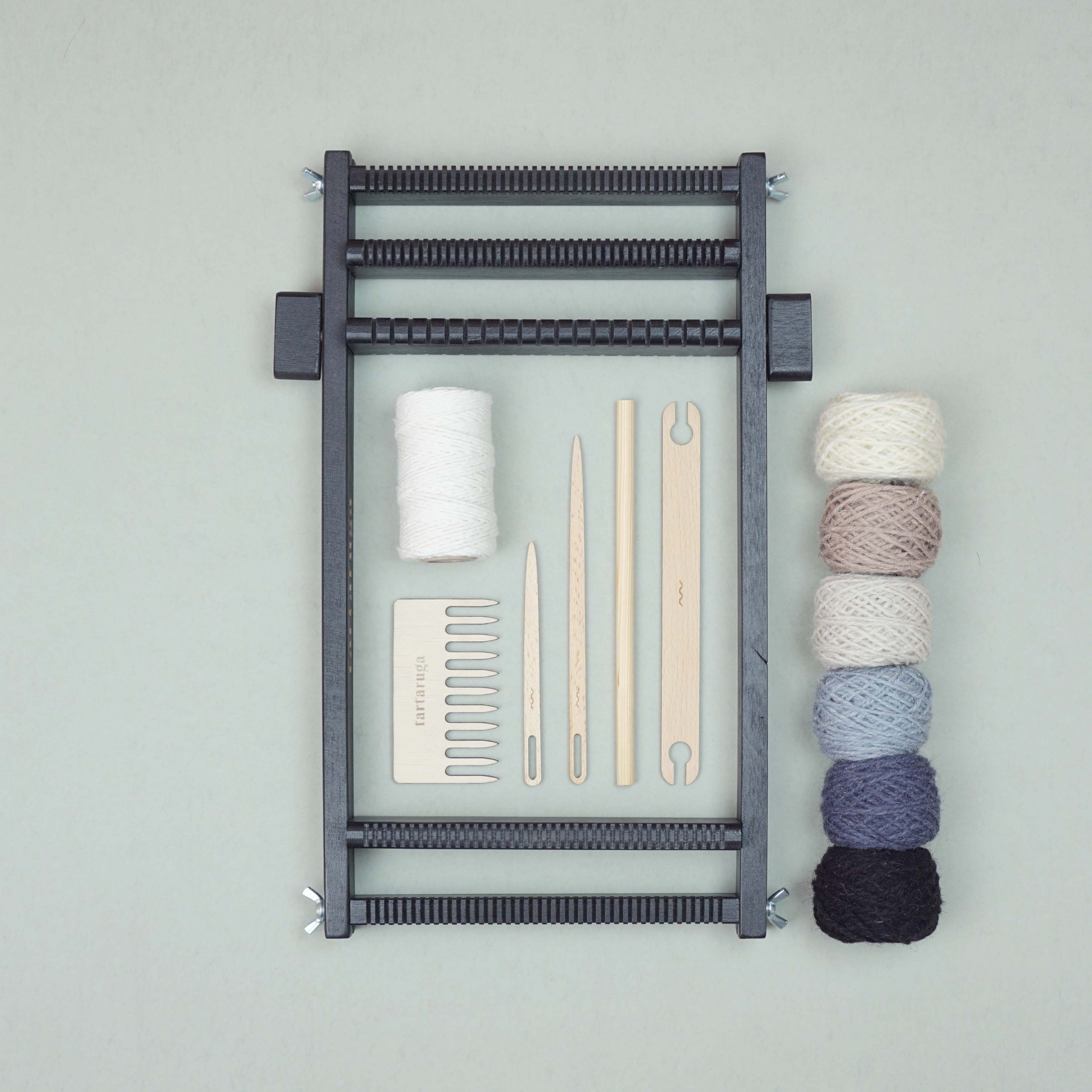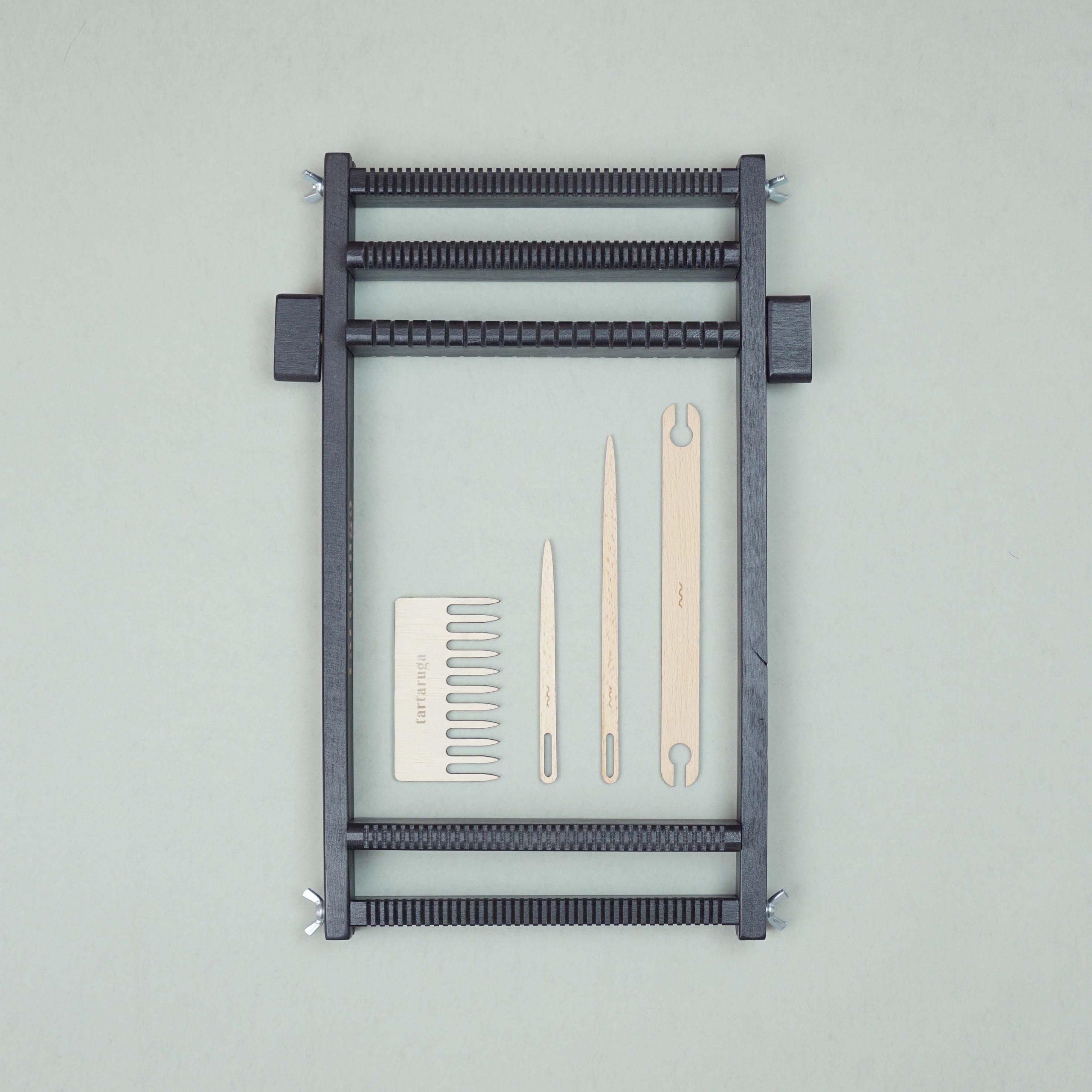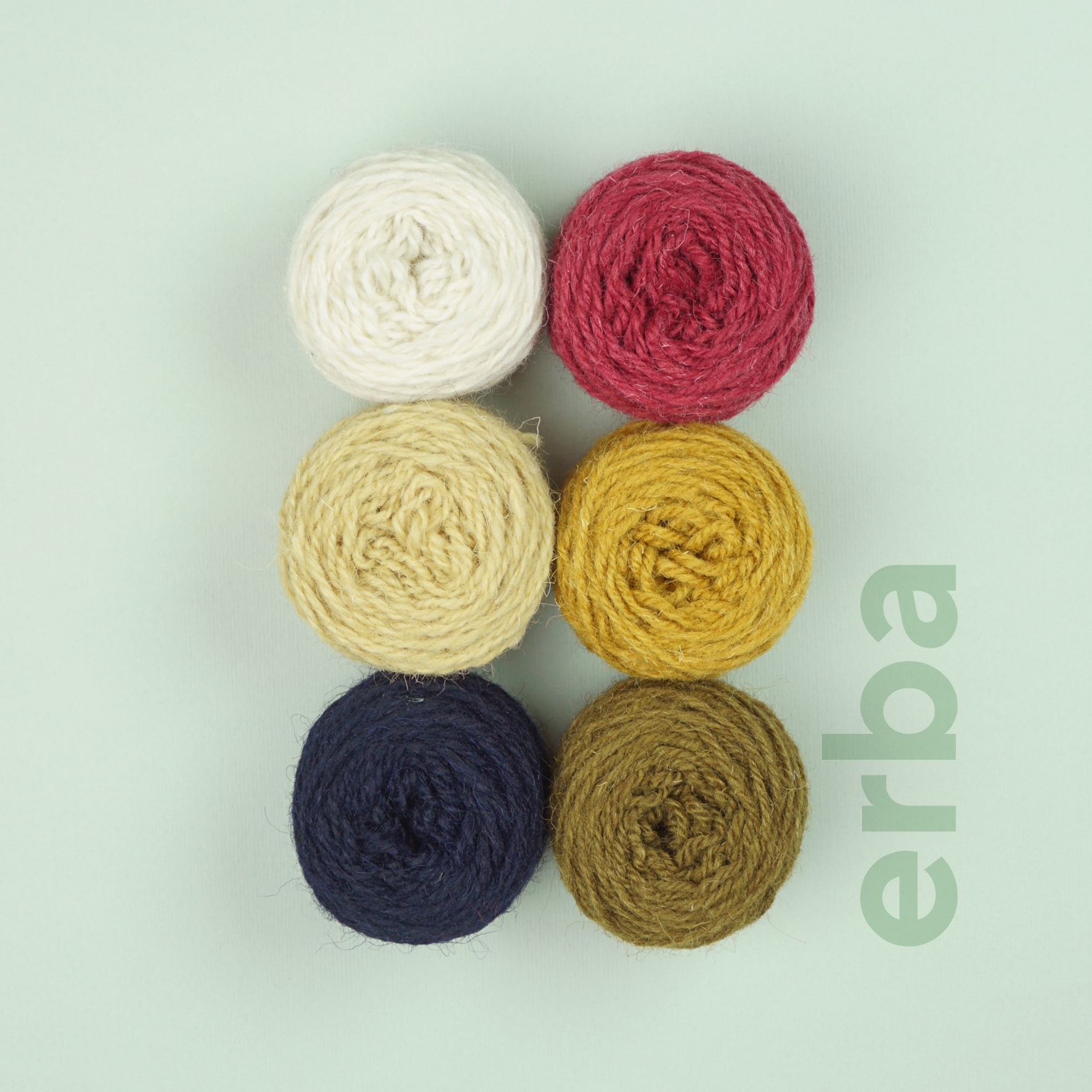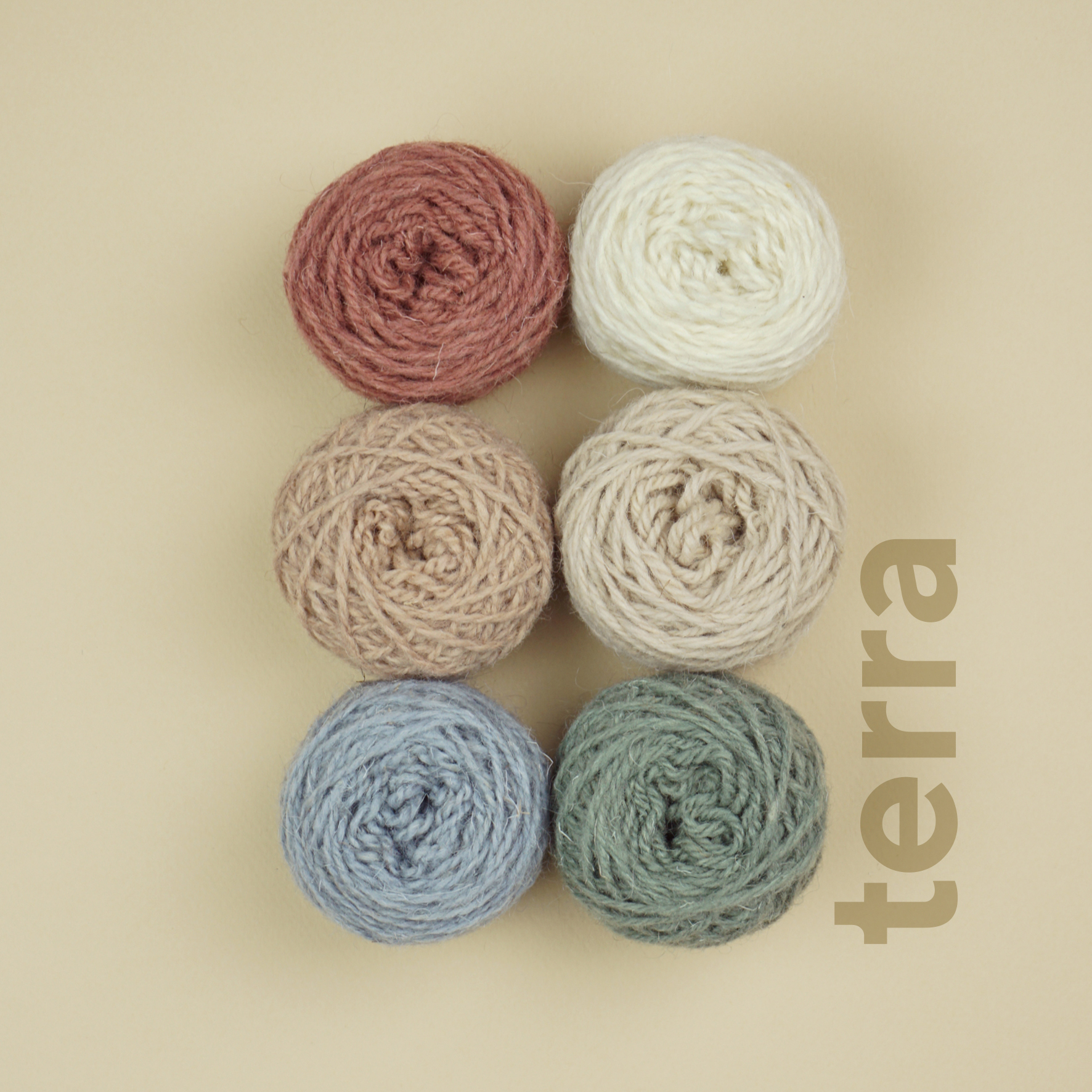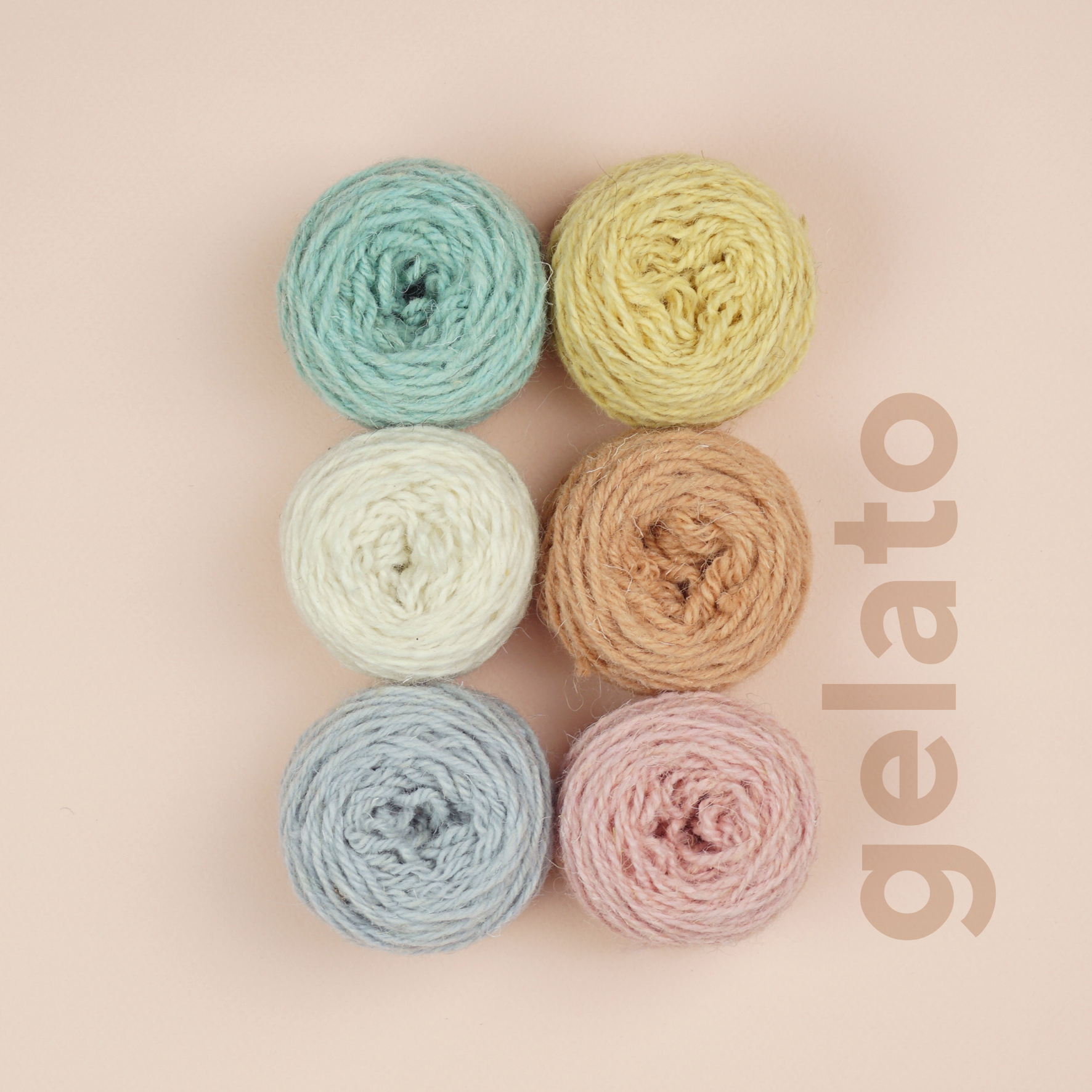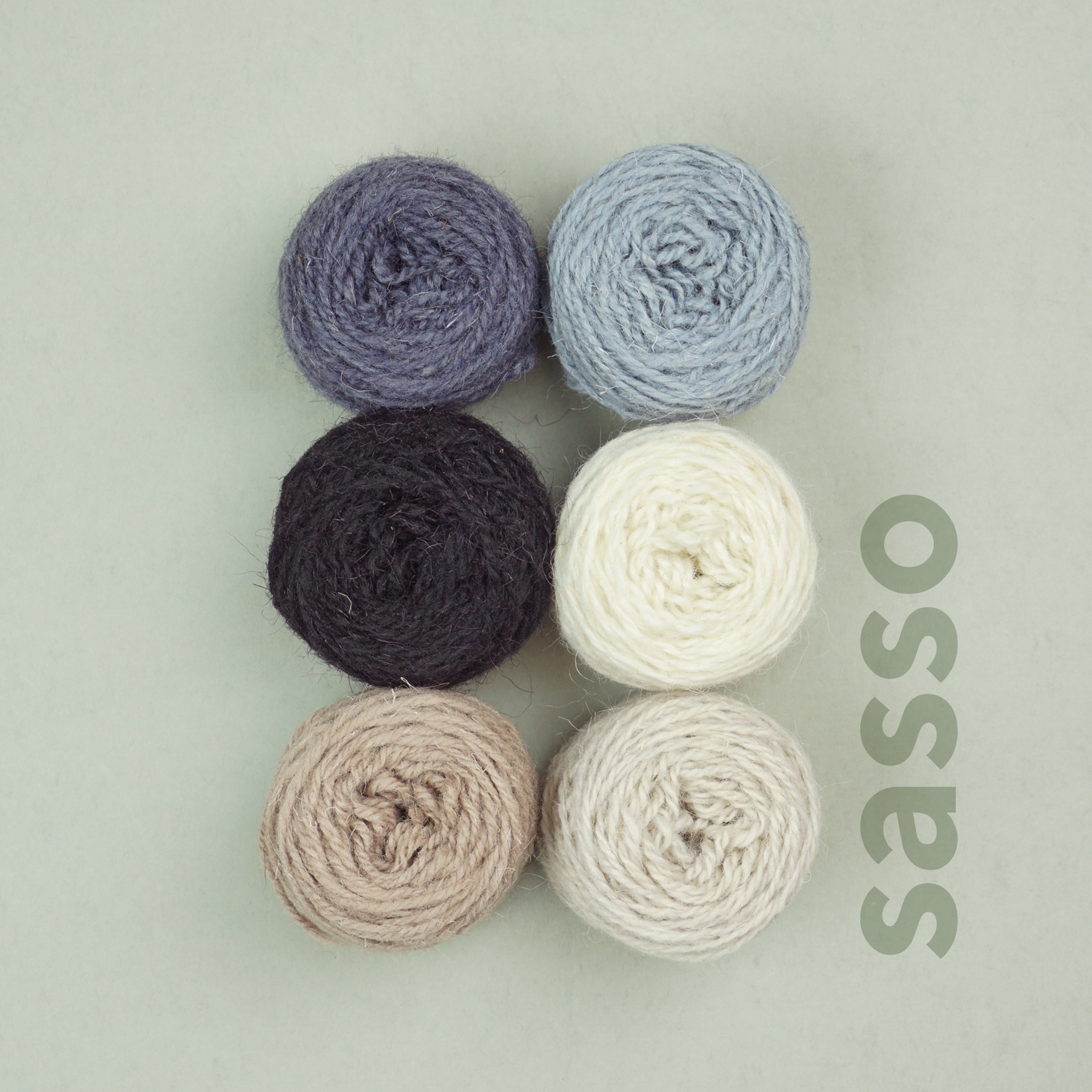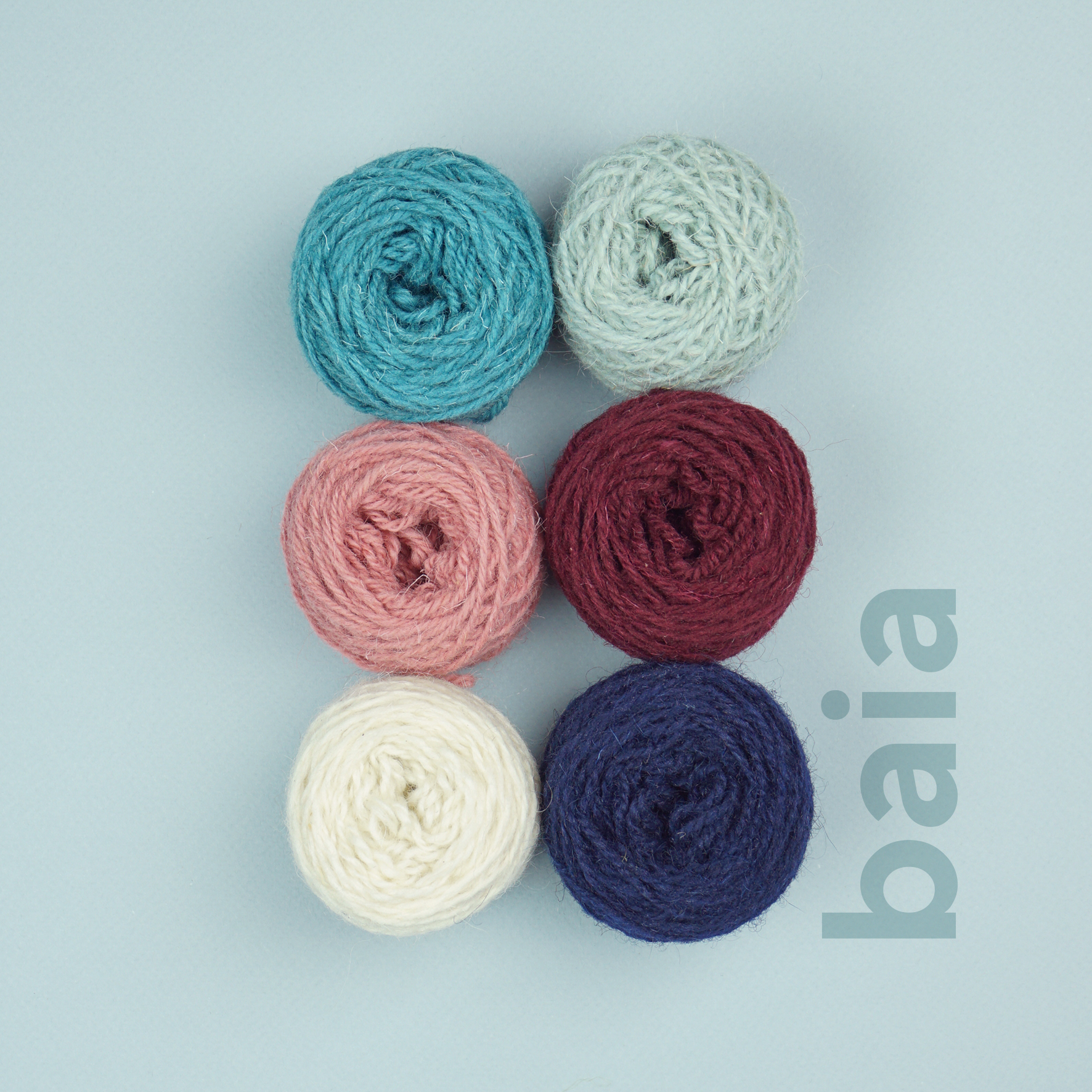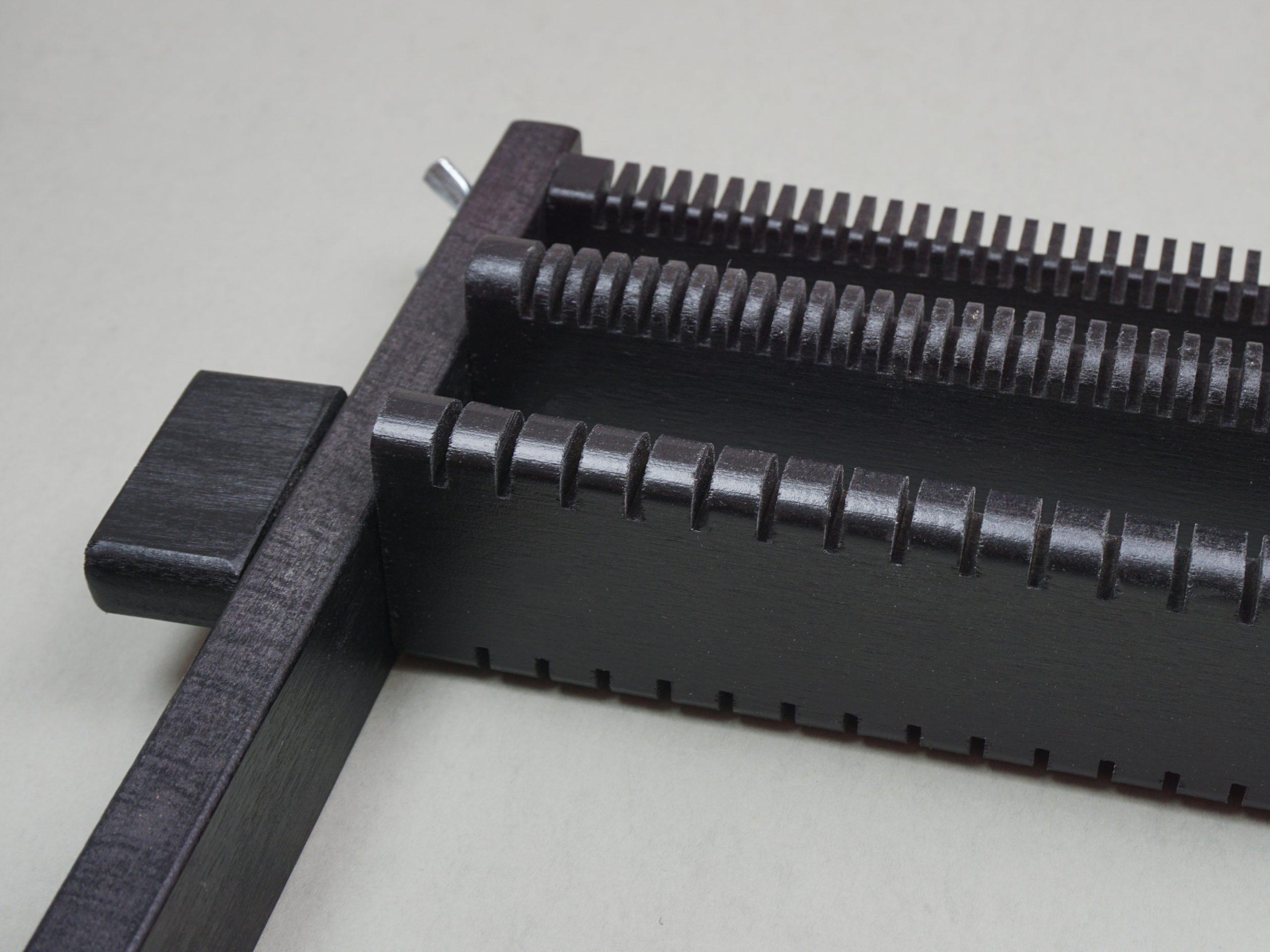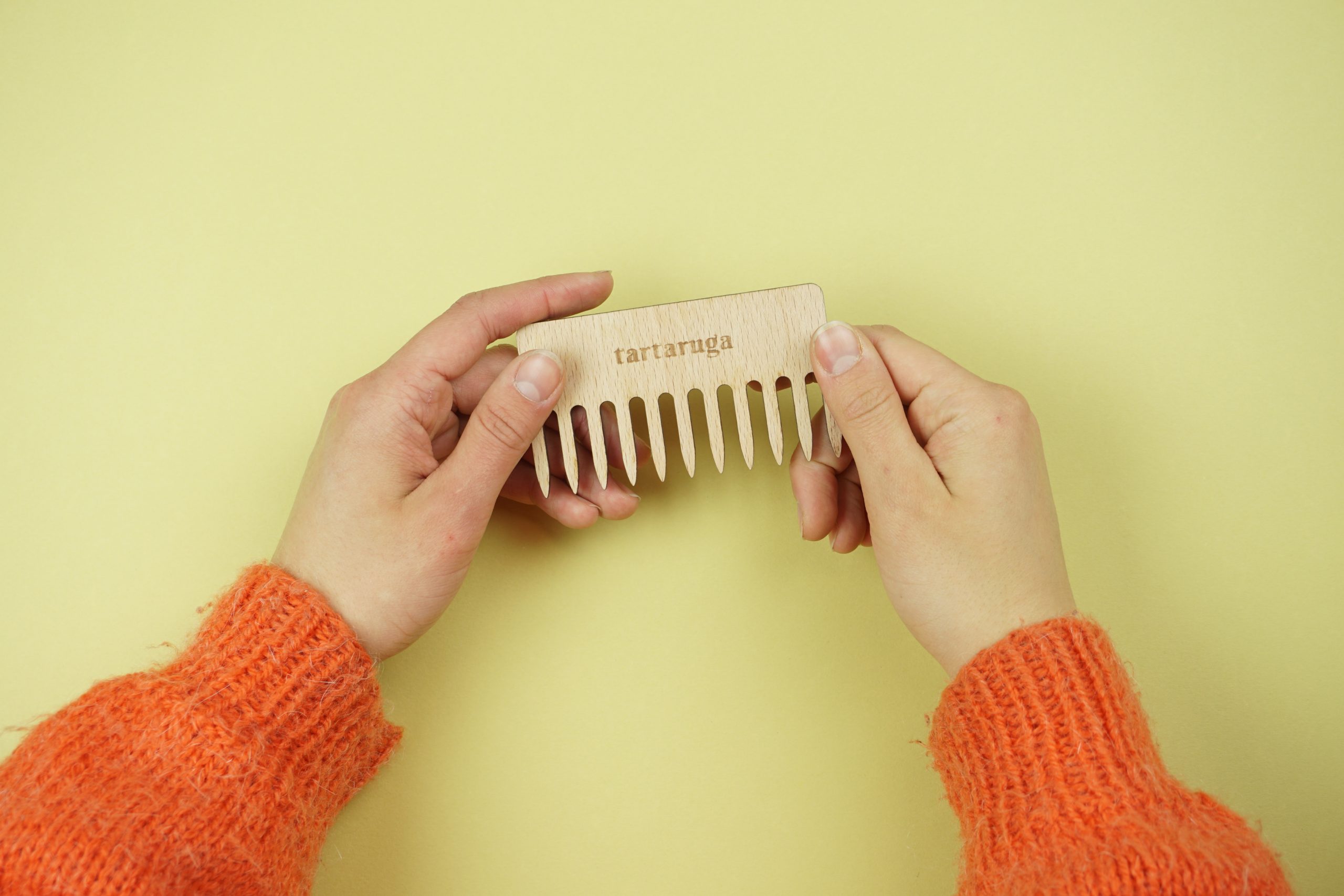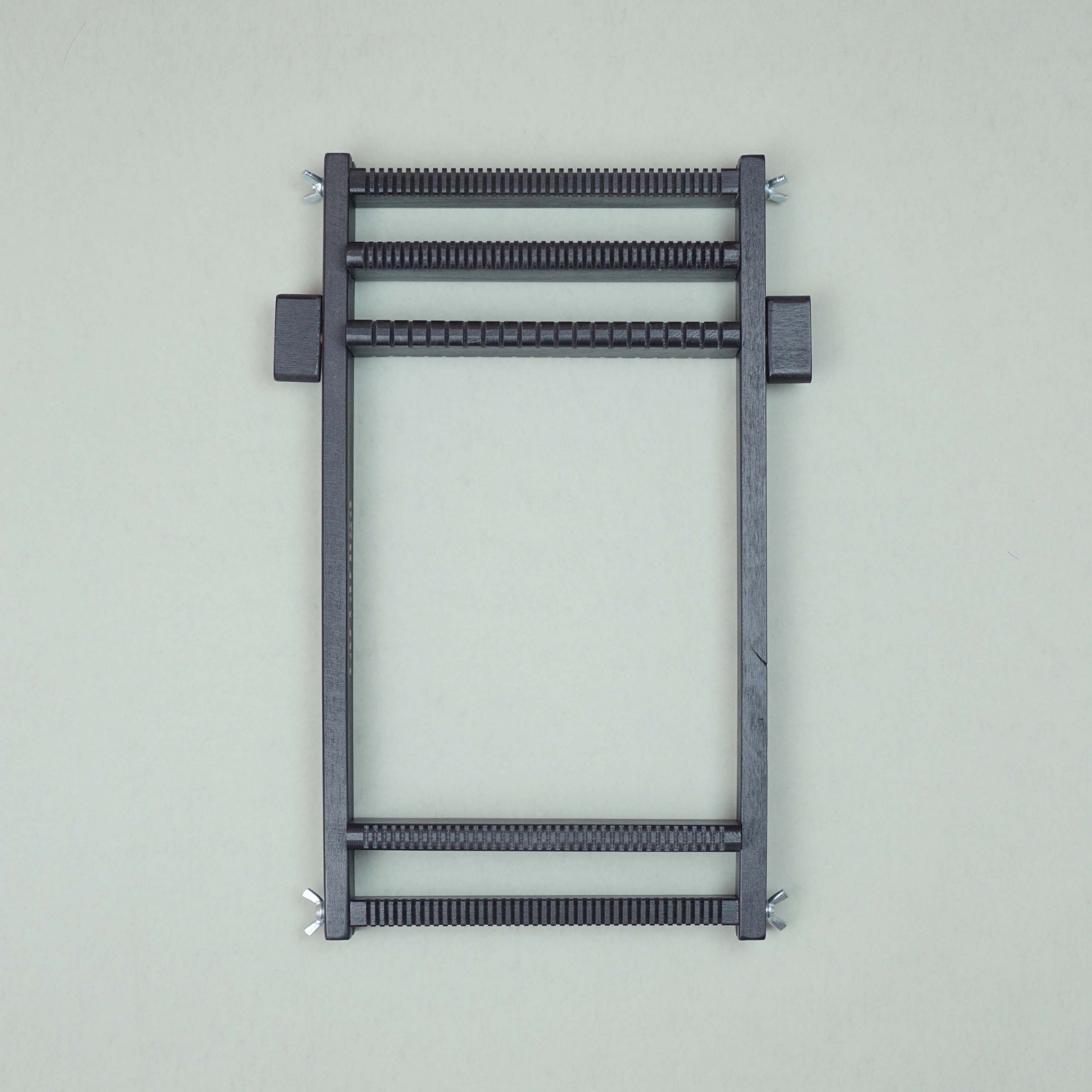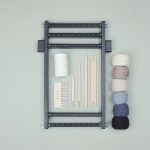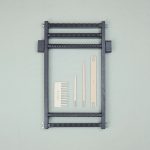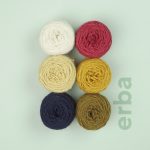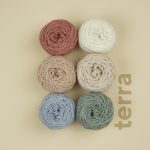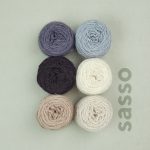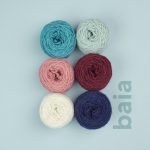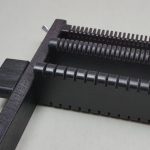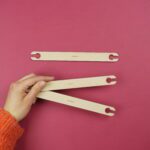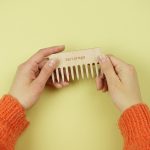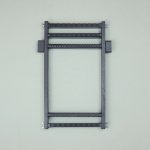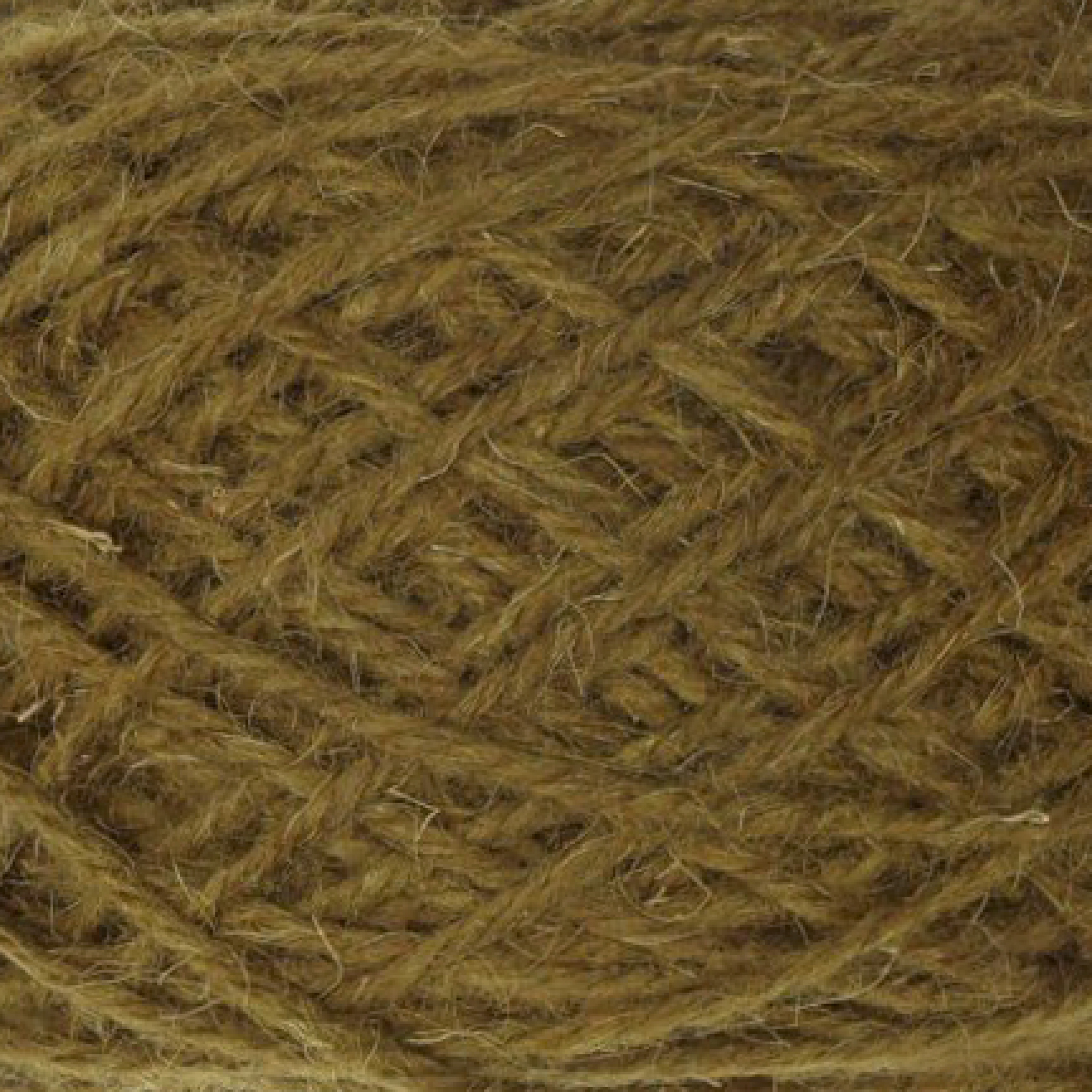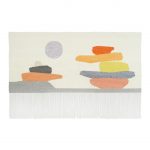Small DIY weaving kit includes small loom in black color; you can also choose an option with 6 balls of woolen yarn and a set of all useful weaving tools. This kit is the best choice for those who start an adventure with a weaving craft or for more experienced weavers who want to try weaving on another frame as well. That’s all you need to start making your own weavings and wall hangings! Just choose your favourite set of yarns and start an adventure with weaving craft!
Our loom is distinguished by a rotary bar which alternately lifts warp threads and the cuts for warp were made at 5 mm (0,2 inch) intervals. All those properties let you to weave in a faster and more pleasant way and also ease the process of warping. The cuts are quite wide so you can easily use thicker warp.
All of the dyed 100% wool and it’s a leftover from the industrial production of rugs. White yarn is raw and non-dyed. It comes from a small sustainable sheeps farm in the South of Poland. Each yarn ball usually comes in one unbroken string but sometimes there can be on or two knots. In small set each ball is ~20g. The weight of balls can differ slightly but the weight of whole set is 120g (+/- 2g). 100 grams of yarn is approximately 140 meters (460′).
Depending on the chosen options the set includes:
– the weaving loom made of beechwood, finished with non-toxic water-based varnish and a loom’s manual. Loom size: 30×44 cm | 11.8×17.3″; max. weaving area: 20×30 cm | 7.9×11.8″
– 120 g of woolen yarns in your favourite color: Terra, Baia, Gelato lub Erba; a 100g cone of cotton warp thread; a wooden stick for hanging a weaving;
– the set of wooden accessories: one 22 cm (8.7″) long flat shuttle, 20 cm (7.9″) long needle, 14 cm (5.5″) long needle, a comb (10×5,5 cm | 3.9×2.2″)
The instruction shows an easy step-by-step way to make your first weaving. You’ll learn about warping the loom, a basic plain weave, weaving basic shapes, making rya knots, finishing weaving and preparing your weaving to hang on the wall.
All Tartaruga’s looms, frames and accessories are produced in Poland.

